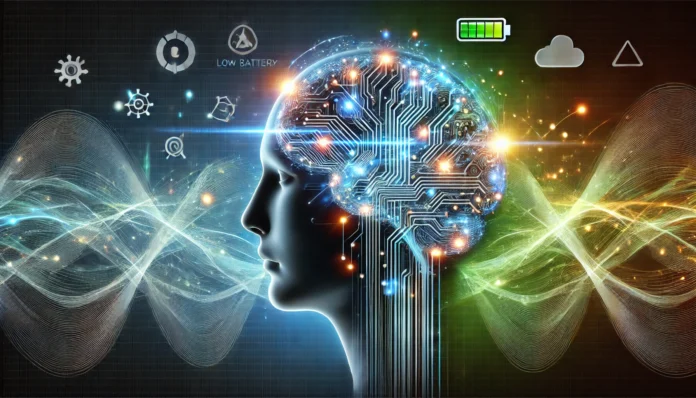In an increasingly fast-paced world, mental fatigue has become a silent productivity killer. Long hours of work, constant multitasking, and an overflow of information contribute to cognitive overload, reducing focus and efficiency. Artificial Intelligence (AI) is a revolutionary tool that is transforming how mental fatigue is monitored and managed. By leveraging AI-driven solutions, individuals and organizations can identify early signs of cognitive strain and implement strategies to optimize mental well-being.
Understanding Cognitive Load and Fatigue
Cognitive load refers to the amount of mental effort required to process information, make decisions, and solve problems. Excessive cognitive load leads to mental fatigue, manifesting as reduced alertness, slower reaction times, and difficulty concentrating. Traditionally, identifying mental fatigue relied on self-reporting or subjective observations. AI changes the game by introducing objective and data-driven methods.
AI-Powered Monitoring of Mental Fatigue
AI systems can analyze physiological and behavioural data to detect early signs of mental strain. Some notable methods include:
1. Wearable Technology
Wearable devices equipped with AI algorithms monitor heart rate variability, skin conductance, and brain activity to assess stress and fatigue levels. For instance, tools like the Muse Headband measure brain waves to provide insights into focus and relaxation during tasks.
2. Real-Time Eye Tracking
AI-powered cameras analyze eye movements and blink rates to identify signs of fatigue. This technology is commonly used in workplaces and driving applications to prevent accidents caused by drowsiness.
3. Voice and Speech Analysis
AI analyzes speech patterns, tone, and pacing to detect cognitive load. Systems like Cogito are used in call centers to monitor agent stress and provide real-time coaching for better performance.
AI Solutions for Managing Cognitive Load
Once fatigue is detected, AI offers actionable solutions to alleviate mental strain:
1. Personalized Break Schedules
AI systems recommend optimal times for breaks based on individual productivity patterns. For example, tools like Timeular combine AI and time-tracking data to encourage balanced work habits.
2. Task Prioritization and Automation
AI tools such as Notion AI and Trello help streamline workflows by prioritizing tasks and automating repetitive processes. This reduces mental clutter and allows individuals to focus on high-value activities.
3. Adaptive Learning Platforms
AI-powered learning platforms adjust the difficulty and pace of content delivery based on the learner’s cognitive state, preventing overload. Platforms like Smart Sparrow ensure an engaging and manageable learning experience.
Challenges and Ethical Considerations
While AI offers significant benefits, its use in monitoring mental fatigue raises ethical concerns:
- Privacy Issues: Continuous monitoring of physiological and behavioural data may infringe on personal privacy.
- Dependence on Technology: Over-reliance on AI to manage cognitive load may diminish self-awareness and personal responsibility.
- Bias in Data: AI systems trained on biased datasets might misinterpret signals, leading to incorrect fatigue assessments.
Conclusion
AI’s role in addressing mental fatigue is transformative, providing data-driven insights and personalized interventions. By leveraging wearable technology, real-time analysis, and adaptive tools, AI helps individuals and organizations maintain productivity while promoting mental well-being. As these technologies advance, balancing innovation with ethical considerations will be crucial in creating a sustainable and human-centred approach to managing cognitive load.





